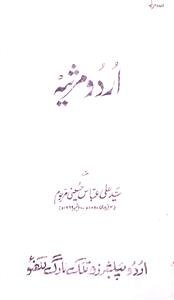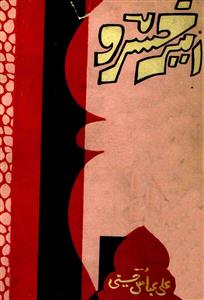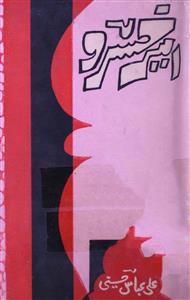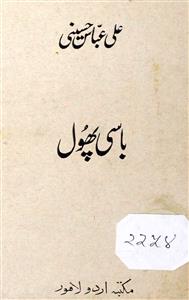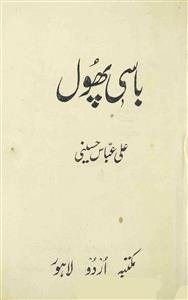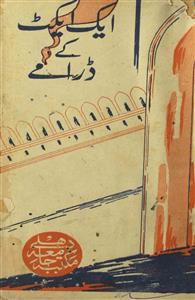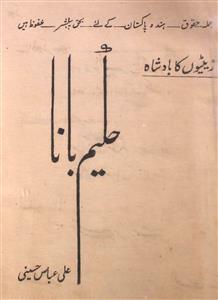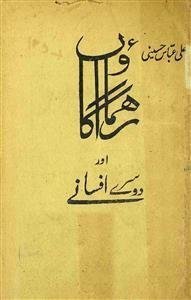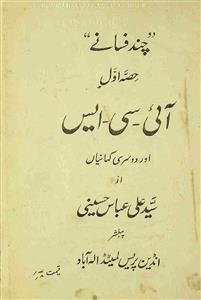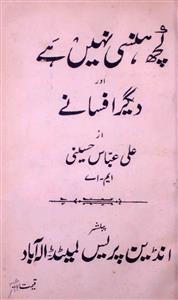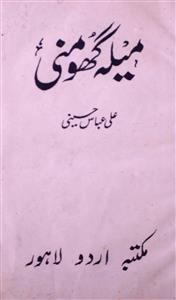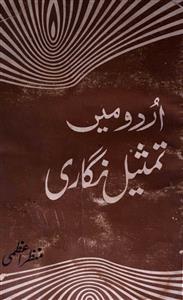 For any query/comment related to this ebook, please contact us at haidar.ali@rekhta.org
For any query/comment related to this ebook, please contact us at haidar.ali@rekhta.org
About The Book
اردو مرثیہ، علی عباس حسینی کی آخری تصنیف ہے، جو ان کی وفات کے بعد منظر عام پر آئی ، یہ کتاب در اصل حسینی صاحب کی لکھی ہوئی کتاب "ہماری اردو شاعری" کا ایک باب ہے ، ہماری اردو شاعر ی"چونکہ اردو شاعری اور اس کے اصناف پر مختلف نقادوں کے اعتراضات کے جواب میں لکھی گئی تھی اسی لئے اس کتا ب میں علی عباس حسینی نے مرثیہ پر ہونے والے اعتراضات کا جواب نہایت محققانہ اندا ز میں دیا ہے جس سے نہ صرف معترضین کے اعتراضات کا ازالہ ہوتا ہے، بلکہ مرثیہ کے فن اور اس کی روایت کے سمجھنے میں بھی مدد ملتی ہے۔
About The Author
Ali Abbas Hussaini is well-known as a short story writer, playwright, and critic. He was born on 03 February, 1897 in a village called Para in Ghazipur district of Uttar Pradesh. He got his degrees of Matriculation and Intermediate from Mission High School, Allahabad. After graduating from Canning College, Lucknow, he took his M. A. in History from Allahabad University. Subsequently, he taught at Government Degree College, Lucknow. He retired from this college as its Principal in 1954. Hussaini passed away on 27 December, 1969.
Stories inflamed Hussaini’s imagination right from his childhood. He had finished reading stories from Alif laila, Firdaus’s Shahnameh, Tilism-e Hosh Ruba, and other classical collections of stories quite early in his life. In 1917, he wrote his first story entitled “Ghuncha-i-Nashaguftah” and in 1920 he penned a romantic novel entitled Koh-e Qaaf ki Pari under the pen name of Sir Syed Ahmad Pasha. Shayad ke Bahaar Aaye was his second and last novel. He put together his stories in collections entitled Rafeeq-e Tanhai, Baasi Phool, Kaanton Mein Phool, Mela Ghoomani, Nadia Kinarey, ICS aur Doosrey Afsaaney, Yeh Kuchch Hansi Naheen Hai, Uljhey Dhaagey, Aik Hammam Mein, and Sailaab ki Raatein.
His plays were put together in Aik Act ke Dramey. Hussaini earned a name as a fiction critic as well. He was the first to write a book on the history and criticism of novel as a literary genre. He collected his critical essays in a book called Uroos-e Adab.
 For any query/comment related to this ebook, please contact us at haidar.ali@rekhta.org
For any query/comment related to this ebook, please contact us at haidar.ali@rekhta.org
